
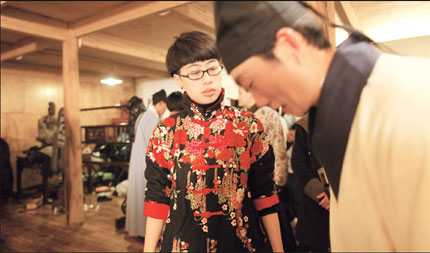 |
| Yu Manwen directs a Kunqu Opera artist for the first show to be staged in June for the "Seed Theater" project to push experimental theater works.(Shanghai Daily) |
Shanghai dramatists are trying to attract theatergoers to experimental theater, or little theater, which has been around 30 years and, they say, is widely misunderstood as being obscure and difficult.
It's not obscure, they say, but nor is it silly mainstream romantic comedy about love and money that's popular today.
Two projects will be launched this year, starting in March, to popularize the little-theater genre that covers a range of subjects.
The small-theater setting shortens the psychological distance between actors and audience.
In March, Shanghai Drama Arts Center will launch a two-year experimental drama campaign "Waves Behind" ("Hou Lang"), staging both domestic works and Chinese adaptations of Western classics of experimental theater.
In June, director Yu Manwen will launch a "Seed Theater" project at the Mini Theater in 1933 Old Millfun, to allow artists in different fields, from opera to calligraphy, to tell their stories and explain their art on stage. Not all will be professional actors.
Productions will be in Chinese, with English subtitles.
Director Yu calls "Seed Theater" an "original creation carnival for young artists." The first "Seed Theater" show in June will be about Kunqu Opera artists directed by Yu herself. Only a couple of actors will take part, performing traditional opera vocals and answering questions about Kunqu.
'Seed Theater'
"There are many behind-the-scenes stories in all art fields - Chinese traditional operas, paintings and calligraphy, music and dance. We use the stage to present the appeal and stories of those arts and encourage young artists to present their creations," Yu says.
The "Seed Theater" project to promote creative theater is sponsored by the Ze-Ren Female Artists Community Special Fund founded this January by Yu and her independent drama studio Ze-Ren.
"More and more voices are encouraging people to appreciate real experimental theater arts, enjoying the most original drama creations," Yu says.
"We are presenting our attitudes, not merely catering to audience taste about 'hot topics'," she says.

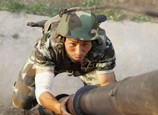
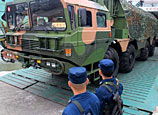
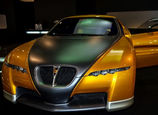
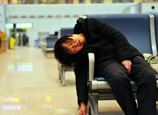
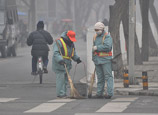

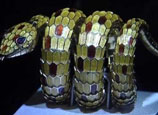









 A Taiwan student's adventure in Beijing
A Taiwan student's adventure in Beijing


![]()
